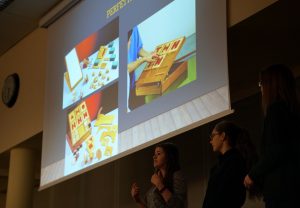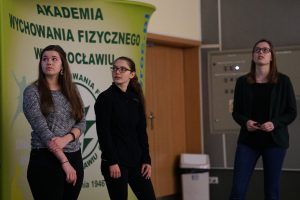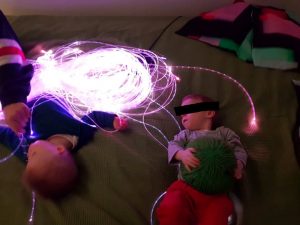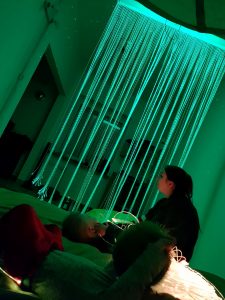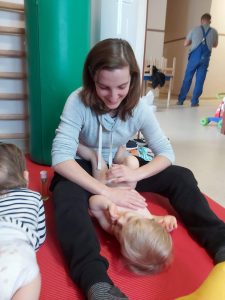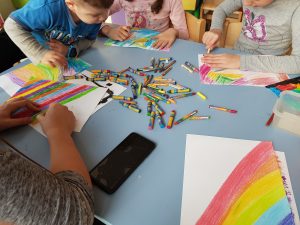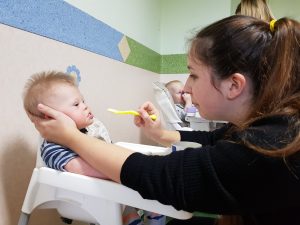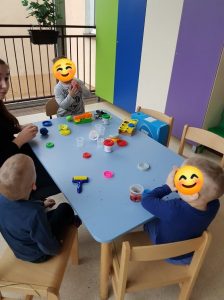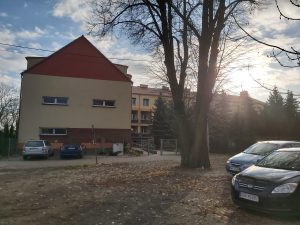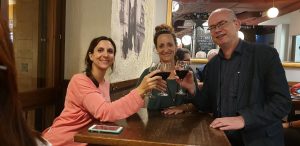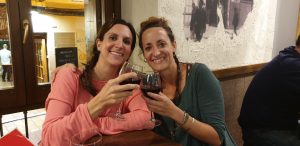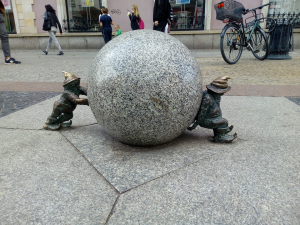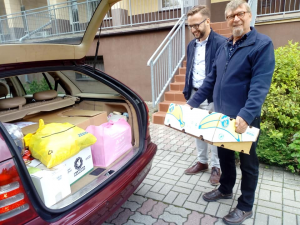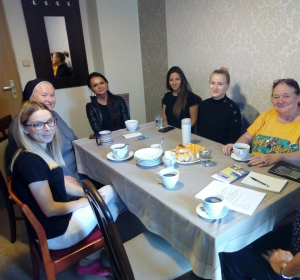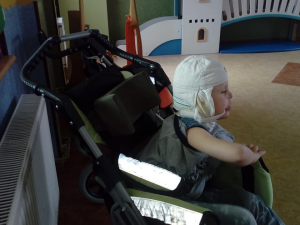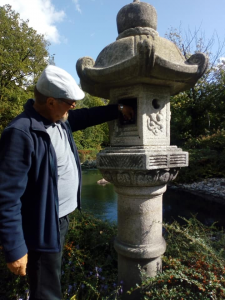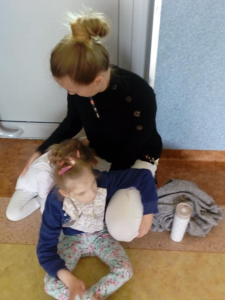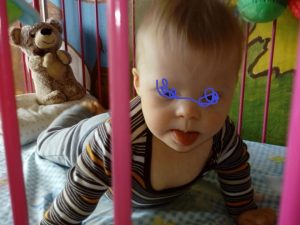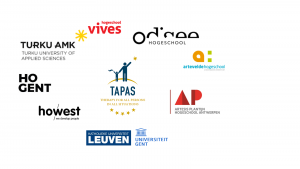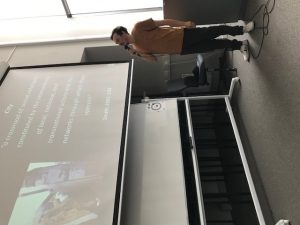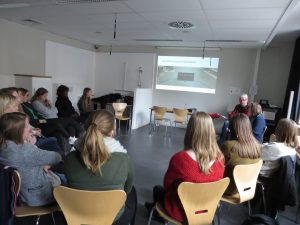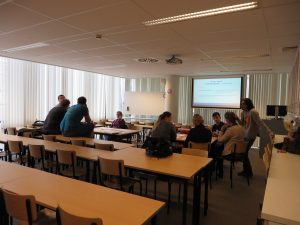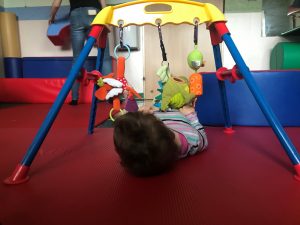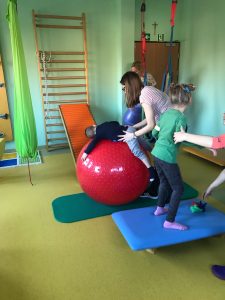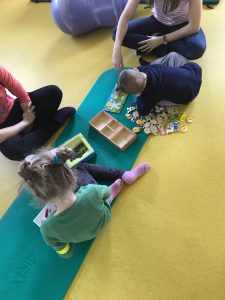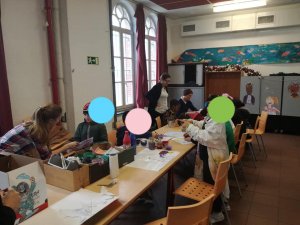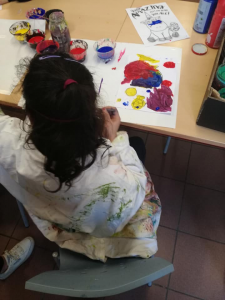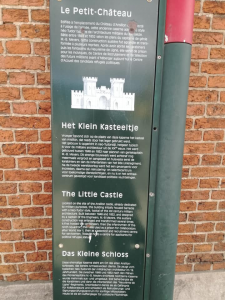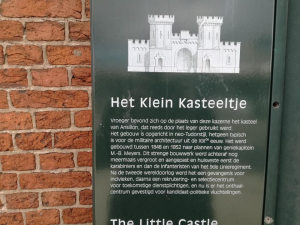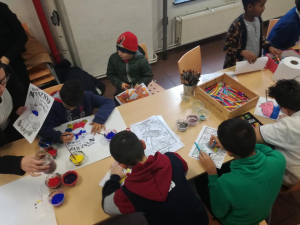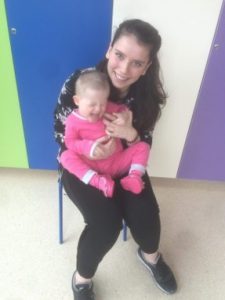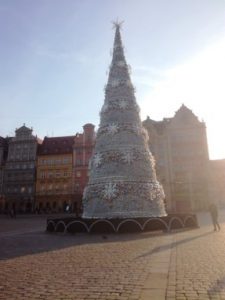Three OT students of Odisee did internship in Jana Pawla 2 institute Jaszkotle – Poland.
They tell about a lot of experiences, professional and personal.
Their conclusion: It was a great and intensive experience , we will miss the children. Thanks to TAPAS and Odisee unversity of applied sciences campus Brussels.
Het internationale avontuur in Polen zit er voor ons allen op. Melissa is tot woensdag (03/04/2019) nog in Wroclaw, om even op adem te komen van de stage. Alien en Ellen zijn reeds terug in België en binnenkort start voor ons allen de allerlaatste stageperiode. Vanuit onze persoonlijke blog halen we enkele uittreksels die we samen gieten in een doorlopende tekst.
We liepen allen stage in hetzelfde weeshuis in Jaszkotle, een buitenwijk van Wroclaw. Wroclaw kan je gemakkelijk bereiken met één van de taxi’s of de bus ‘Anita’. We geven wel toe: Polen en het verkeer, soms roekeloos of boven de gemiddelde kilometersnelheden, we hebben het allemaal mogen ervaren. Wroclaw is een prachtige en kleurrijke stad, waar het ’s avonds laat nog bruist van het leven. Winkels en diensten blijven laat open. Dat zorgt ervoor dat je op je gemak de stad kan verkennen. De kabouters zijn ons zeker niet ontgaan. Met de Flexbus of de PKP-citytrein geraak je makkelijk tot in Kraków en Warschau. Een bezoek aan Auschwitz-Birkenau en de Zoutmijnen zijn een absolute aanrader.
De eerste stagedag verliep bij velen gelijkaardig, met het nodige papierwerk en een eerste kennismaking met Agnieszka en Justyna, de fysiotherapeuten die in de instelling werken, en onze stagementoren. We kregen van hen de nodige informatie over de werking van het weeshuis en over onze volgkindjes. Dit werd gevolgd door een rondleiding in het (grote) gebouw, waarbij we kennis maakten met de kinderen. Voor Ellen verliep dit helemaal anders. Agnieszka en Justyna waren in haar eerste stageweek niet aanwezig. Hierdoor moesten Melissa en Alien haar, waar nodig, uitleg geven. Bij de eerste kennismaking zagen we veel blije gezichten, maar door de taalbarrière was het een beetje onwennig. Gaandeweg leerden we een vorm van communicatie aannemen en werd het contact met elkaar steeds beter. Hier en daar een Pools ‘woordje’ hielp ook al wat.
Dagelijks werd er rond zitbalans, sensorische integratie, adl-training, mobilisatie, Shantala-massage en Sherborne therapie gegeven. Door deze methodes naast de theorie toe te passen leer je heel veel bij en dat maakt het geven van therapie zo interessant. Er waren kinderen met zeer diverse pathologieën, achtergronden en karakters. Multidisciplinair overleg bestaat er niet, en dat is te merken bij het geven van therapie. De kinderen zouden ook tijdens het eten zeer goed kunnen werken op zitbalans, maar helaas laat men dit hier niet toe. De maaltijdbegeleiding kan voor de medewerkers niet snel genoeg gedaan zijn.
Polen begint meer en meer tot het lijstje van toeristische landen te behoren. Het is eten is er lekker én goedkoop. We kregen een rondleiding in de Universiteit van Wroclaw, waaruit bleek dat Polen absoluut geen arm, grijs land is. Prachtige gebouwen en kilometers aan open ruimte zodat studenten fysiotherapie hier gebruik van kunnen maken.
We zijn allen een ervaring rijker, en we kregen er een gemis bij, want intens therapie geven bij je volgkindjes zorgt toch voor een intensere band. Een grote dank aan TAPAS & Odisee Campus Brussel.
Do widzenia,
Melissa, Ellen i Alien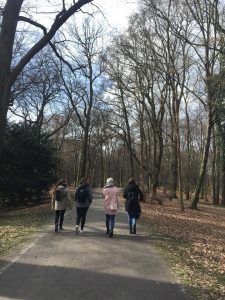
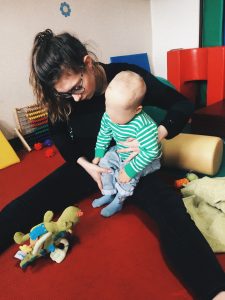
Processed with VSCO with hb2 preset
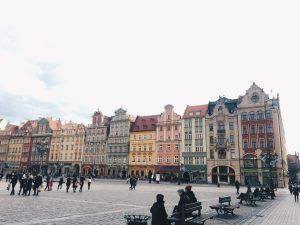
Processed with VSCO with hb2 preset
